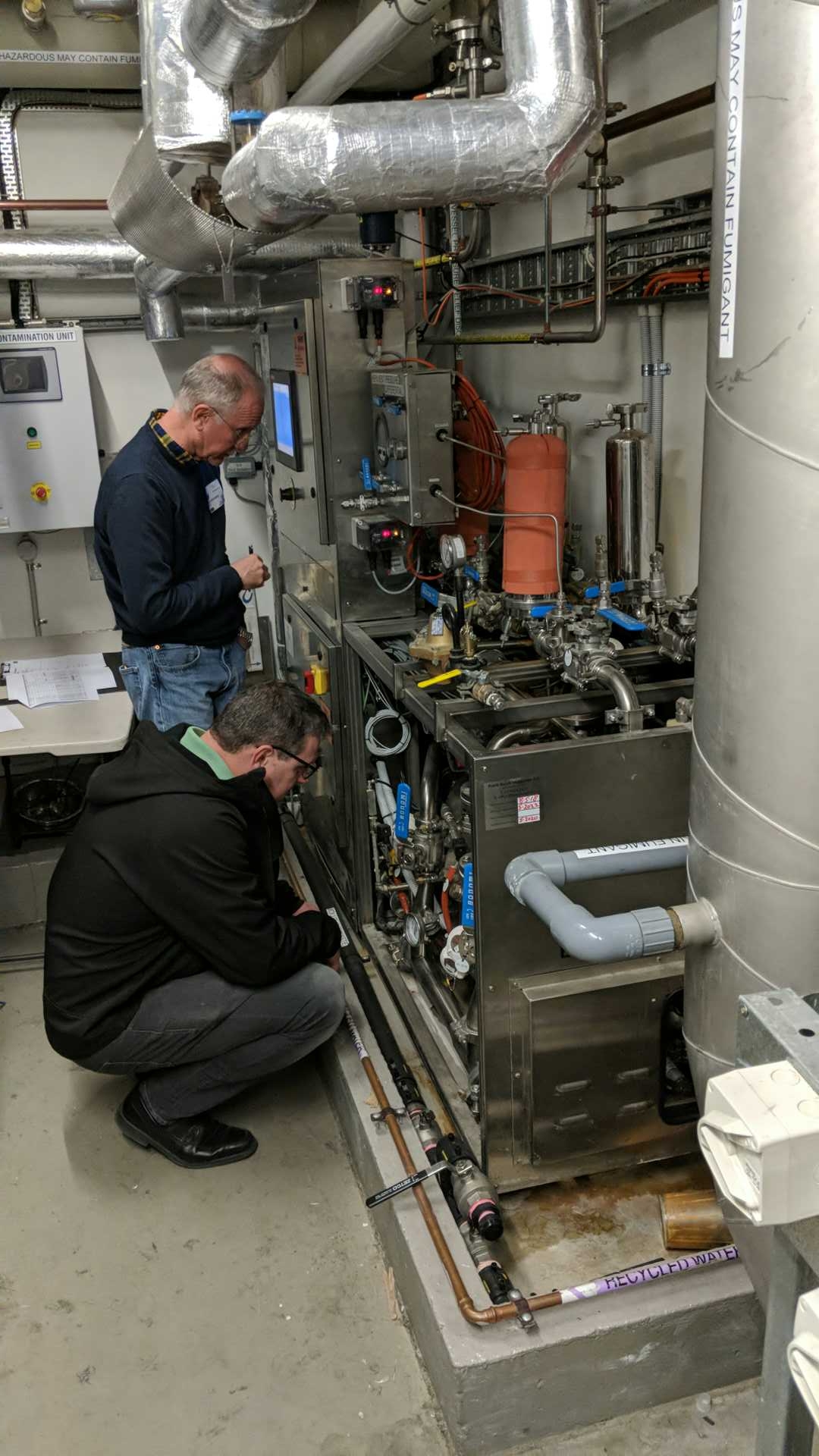Creating safe and healthy work environments through biological safety consulting and services.
Controlled environments - healthcare, research, life science and pharmaceuticals.
Why do Preventative Maintenance (PM's) on your EDS system?

Why do Preventative Maintenance (PM’s) on your EDS system?
PRI and credible EDS system manufacturers, pride themselves on building reliability in the systems for the maximum possible uptime and service life. As such, component failures are relatively rare. So why go to the time and expense of pre-emptive service calls?
Critical Systems cannot be allowed to fail
EDS systems protect staff and those outside the facility from potentially very harmful release outcomes. A single point of failure in the system, may put that protection at risk. In some cases, these breaches can result in notifications to the OGTR regulators. Given that any down-time on the system will cause disruption to the workflow of laboratories or facilities connected to the system, failures need to be swiftly addressed.
Although the fundamental concept of an EDS system is very simple – essentially it is an online autoclave – the smooth operation of it requires a complex array of sensors, valves, software, communication systems and support from drains, water, steam and electrical supplies. Thus, troubleshooting a broken system in an emergency, where compliant parts may be difficult to source quickly and staff work-load pressures are building, is to be avoided at all costs.
Prevention is better than cure
As with vaccination programs, addressing the issue before it occurs is always a wise course of action. Preventative maintenance may provide several benefits to a facility. Consumables to be changed can be sourced and verified “fit-for-purpose” well in advance, eliminating delay times. The system maintenance tasks may be scheduled when work-flows are at their minimum – to prevent disruption to staff. Timely calibration checks of components, sensors, valve performance, thermal devices etc, can identify items that will cause failures before they fail, assuring uptime and regulatory compliance.
Observations of time
Regular checks and documentation of an EDS system, the “service history”, allows a more nuanced view of the system's performance, intermittent faults, momentary issues that are lost in a “reactive” service approach, gain attention and correction, giving you the confidence that a “critical system” is always ready to perform its function at the maximum level. Just one of the many good reasons is that long-term service contracts work out well for facilities.
Peace of mind
Ultimately, the answer to the question of why a PM, is not to save money, to maintain warranty or because a procedure requires it (although all of these are true), it is to have day-to-day confidence that our staff and those around us are kept safe. There are enough un-planned challenges to deal with in the modern technical facility – that solving a potentially critical failure well ahead of it occurring, is a very satisfying and wise choice.
© Copyright Biosafety. All Rights Reserved.